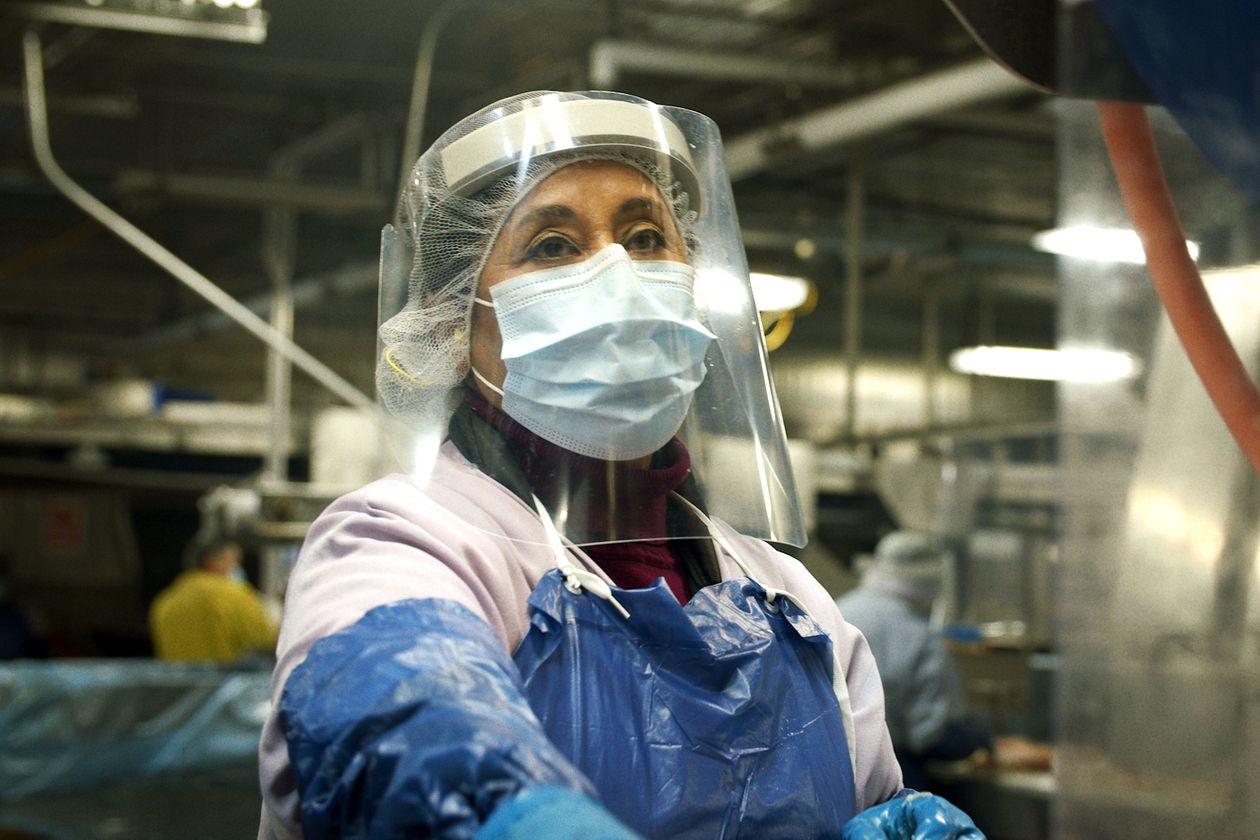- The Biden administration has withdrawn a proposed rule that would have allowed poultry plants to increase line speeds to 175 birds per minute from 140 birds per minute, an increase of 25%. “The line speed rule is one of several rules and regulations that fall under the regulatory freeze memo issued last week by the White House,” the USDA said in a statement provided to Food Dive. “The memo requests all federal agencies ‘withdraw any rules that were submitted to [Office of Information and Regulatory Affairs] prior to January 20, 2021.’ “
- During the Trump Administration, the USDA’s Food Safety and Inspection Service approved temporary waivers for more than 50 poultry plants to increase slaughter speeds, including 15 during the pandemic, The Washington Post noted. The withdrawn rule would have made those permanent and allowed other plants to adopt the 175-birds-per-minute line speed without the need to apply for a waiver.
- Biden spoke out against faster processing rates for cattle, pigs and chickens ahead of the election, citing the pandemic, social distancing protocols and health risks for workers inside those facilities. Bloomberg reported that a separate rule from the Trump administration that increased hog slaughter line speeds will be reviewed by the White House.
The new administration has wasted little time overturning or pausing some measures proposed or enacted by the Trump White House. The decision to review faster line speeds was telegraphed by Biden during the campaign when he said doing so only serves to boost corporate profits while putting workers at risk. The withdrawal of the rule was widely applauded by consumer advocacy groups including Food & Water Watch and the Humane Society of the United States.
“Allowing this rule would have demonstrated a staggering lack of judgment and recklessness under the circumstances,” Sara Amundson, president of the Humane Society Legislative Fund, said in a statement. “We will continue to work with the Biden Administration to make sure additional steps are taken to slow down line speeds across the industry to protect animal welfare and worker safety.”
Wenonah Hauter, executive director with Food & Water Watch, said “the Biden administration has resisted the bidding of the immensely powerful corporate poultry lobby, at least for the moment.” The Trump rule “would have been a senseless giveaway to the industry at the expense of Americans’ health and safety. Nothing is more egregious.”
The Washington Post noted earlier this month that since 2018, the Trump administration had issued — or reissued — temporary waivers that granted permission to 54 poultry plants to increase line speeds. Those facilities also are 10 times more likely to have coronavirus cases than poultry plants without the line-speed waivers, according to the paper’s analysis of data collected by the nonprofit Food & Environment Reporting Network.
A faster speed would mean qualified poultry plants could process 35 more birds every 60 seconds, a benefit to their businesses as consumers cook more at home and demand additional protein in their diets. Poultry processing giants Tyson Foods, Pilgrim’s and Sanderson Farms did not respond to a request for comment on the USDA decision. A spokesperson with Perdue Farms said the company “adheres to the standard processing line speed of 140 birds per minute, and has not applied for a higher line speed waiver.”
In the past, the industry has objected to the argument that faster speeds increase the risk of injury for workers. Ashley Peterson, senior vice president of scientific and regulatory affairs at the National Chicken Council, said in a statement to Food Dive that while the poultry industry has been increasing line speeds during the past 25 years, the industry’s injury and illness rate has fallen 86% to an all-time low, according to data from the Labor Department. She was optimistic the rule would move forward.
“It would be unfortunate for the new administration to ignore three decades of science, data, and court decisions, in a move that would hamstring the U.S. poultry industry on a global scale,” she said. “This might have been the most deliberative and studied rule that has ever been proposed.”
Source: Food Dive
